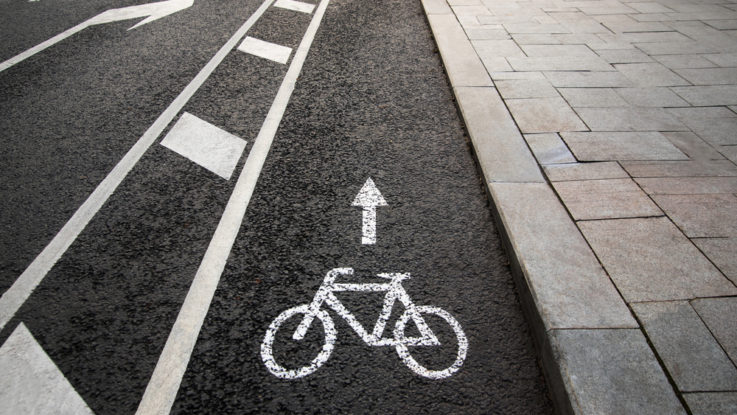
The city of Asbury Park, NJ has been working with Rutgers University to develop a citywide bike network. In order to ensure that bike lanes under consideration would meet the needs of all transportation users, the city partnered with the university on a demonstration project with temporary bike lanes that could be evaluated.
The researchers set up the trial bike lanes in April of this year, using traffic cones, stencils, spray chalk, and even pool noodles. Eye-tracking glasses and galvanic skin response sensors that record stress levels were used to record the bike and e-scooter user experience before and after the bike lane installation. That footage and lidar scans allowed them to simulate the on-site micromobility rider experience via a virtual reality headset in a campus VR lab. Traffic camera footage provided further information on interactions among bikes, scooters, cars, buses, and pedestrians. The trial bike lanes operated for several weeks in April, and community residents were surveyed on their experience using them. Approximatey 90% of the respondents supported making the lanes permanent.
In performing the bike lane trials, the researchers came up with suggestions for future projects:
- use a control site that does not have a bike lane to compare changes in traffic and speed;
- run a project for an entire year to see seasonal variations in traffic patterns;
- virtual simulation “has major limitations” in such research as reproducing the experience of riding a bike or scooter is difficult to achieve;
- survey bike or scooter users AND motorists; and
- publicize the project on social media and look for other ways to inform affected road users.